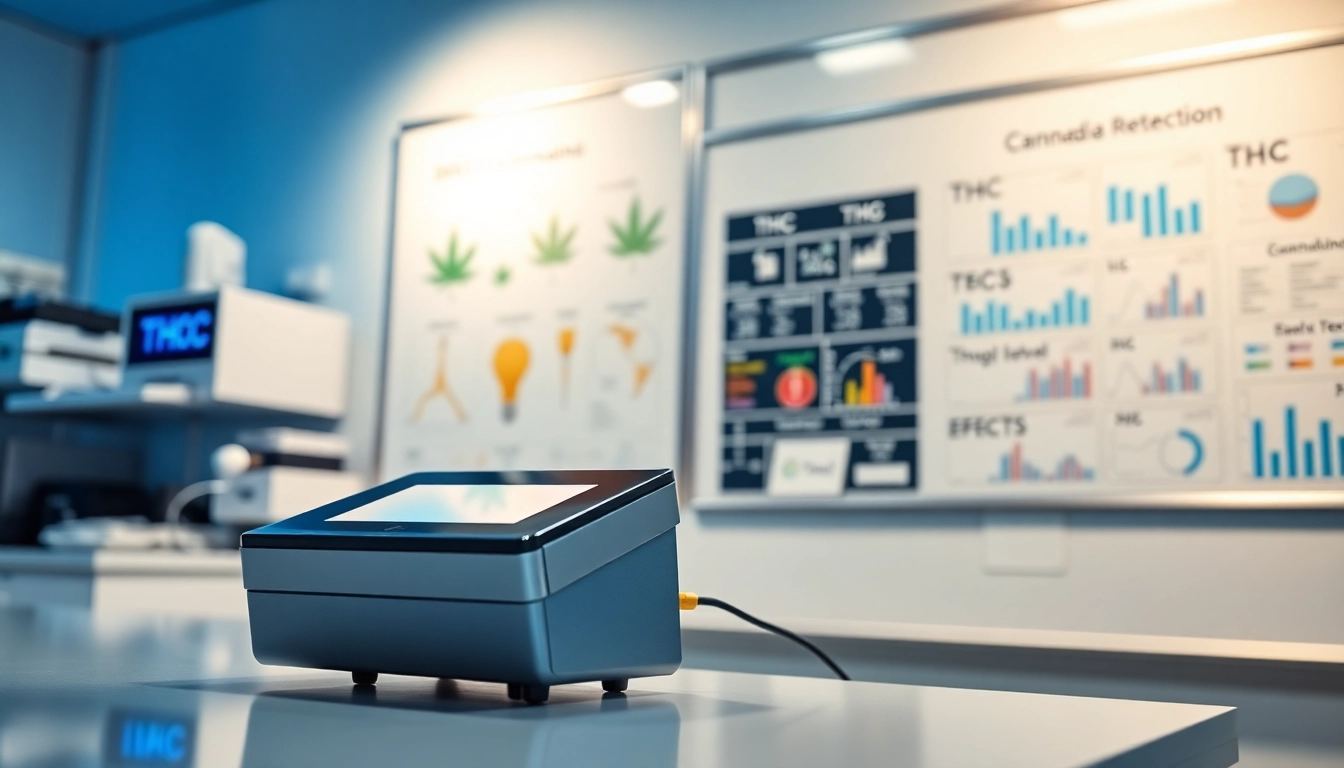What is Peptide Therapy?
Definition and Mechanism
Peptide Therapy is an innovative medical treatment that leverages the natural power of peptides—short chains of amino acids that serve as the building blocks for proteins. Peptides play a crucial role in various biological functions, including hormone signaling, immune response, and cellular communication. Through the administration of specific peptides, this therapy aims to stimulate healing and enhance the overall functioning of the body at a cellular level. Research suggests that Peptide Therapy can effectively contribute to hormone balance, tissue repair, and even pain management.
Types of Peptides Used in Therapy
There are several categories of peptides utilized in therapy, each with distinct mechanisms and applications. Common types include:
- Hormonal Peptides: Such as growth hormone-releasing peptides (GHRPs), which stimulate the pituitary gland to release more growth hormone, promoting muscle growth and recovery.
- Utility Peptides: These impact biological processes directly, like Collagen peptides, which enhance skin elasticity and joint health.
- Neuropeptides: These influence mood and cognitive function. Examples include N-Acetyl Semax Amidate, used for cognitive enhancement and reducing anxiety.
- Antimicrobial Peptides: They perform critical roles in fighting infection and boosting the immune system.
How Peptide Therapy Works in the Body
Peptide Therapy operates through a simple yet profound mechanism: it introduces specific peptides into the body that bind to receptor sites, triggering biological pathways that may have slowed down with age or due to health conditions. Once administered, these peptides can act within minutes, enhancing not only physical health but also cognitive function and emotional well-being. The process involves a systematic evaluation of the patient’s health status to determine the most beneficial peptide sequences, often tailored to individual needs.
Benefits of Peptide Therapy
Physiological Improvements
One of the most significant advantages of Peptide Therapy is its ability to induce physiological improvements across various body systems. These improvements include:
- Enhanced Muscle Mass and Strength: By stimulating growth hormone production, users may experience increased lean muscle mass.
- Improved Recovery and Healing: Peptides can accelerate tissue repair, making them particularly beneficial for athletes and individuals recovering from injury.
- Boosted Immune Function: Certain peptides enhance immune responses, leading to better overall health and quicker recovery from illnesses.
- Improved Sleep Quality: Many users report enhanced sleep patterns, which can further bolster recovery and performance.
Anti-Aging Effects of Peptide Therapy
The demand for effective anti-aging solutions has led many to explore Peptide Therapy. Research indicates that peptides can stimulate collagen production, improve skin texture, and enhance elasticity, thereby mitigating visible signs of aging. Additionally, Peptide Therapy may promote better hormonal balance—often a contributing factor to the aging process—leading to improvements in energy levels, mood, and mental clarity.
Potential for Muscle Growth Enhancement
Sports enthusiasts and individuals engaged in regular physical training often seek Peptide Therapy for its potential to accelerate muscle growth. By influencing growth hormone levels, certain peptides not only promote muscle gain but also enhance the rate of fat loss. This dual benefit makes Peptide Therapy a popular choice among athletes looking to boost performance without relying on traditional anabolic steroids.
Applications of Peptide Therapy
Clinical Uses in Medicine
Peptide Therapy is gaining traction in medical practices due to its versatility. Clinical applications include:
- Hormonal Imbalances: It is often used to restore hormonal equilibrium, especially in aging populations suffering from low testosterone or growth hormone levels.
- Weight Control: Certain peptides assist in fat metabolism, contributing to weight loss efforts.
- Chronic Pain Management: Peptides like BPC-157 have demonstrated promise in healing injuries and reducing pain, making them a therapeutic option for conditions like arthritis and tendinitis.
Cosmetic and Aesthetic Benefits
In the field of aesthetics, Peptide Therapy has emerged as a preferred alternative to invasive procedures. Peptides can stimulate skin regeneration, enhance hydration, and promote healing in cosmetic applications. Many dermatologists are now recommending peptides for anti-aging treatments due to their effective yet non-invasive nature.
Peptide Therapy in Sports Performance
For athletes, Peptide Therapy provides opportunities to enhance performance without the stigma associated with traditional performance-enhancing drugs. Different peptides can promote muscle growth, improve endurance, and expedite recovery time, creating a robust toolkit for competitive athletes. The natural aspect of peptides appeals to professionals concerned about health and ethical implications.
Considerations and Safety
Common Side Effects of Peptide Therapy
While Peptide Therapy is generally regarded as safe when administered correctly, potential side effects may include:
- Injection site reactions such as redness or swelling.
- Allergic reactions in rare cases.
- Gastrointestinal disturbances in some individuals.
Consulting with a healthcare provider experienced in peptide therapy can mitigate risks and optimize treatment regimens.
Consultation and Evaluation Process
A comprehensive evaluation process is crucial before beginning Peptide Therapy. This includes:
- A thorough medical history review.
- Blood tests to assess hormone levels and other health markers.
- A detailed discussion about the patient’s goals, ensuring eligibility for specific peptides.
Regulatory Status of Peptide Therapy
The regulatory landscape surrounding Peptide Therapy can vary significantly. While some peptides are approved for clinical use by regulatory agencies, others remain in research phases or have more complex legal statuses. It is vital for patients to seek treatments from licensed professionals and to ensure that all peptides used are verified for quality and efficacy.
Future Directions in Peptide Therapy
Current Research and Innovations
Ongoing research into Peptide Therapy is leading to innovative applications across various fields, from age-related ailments to specific diseases. Studies continue to unlock the potential of peptide use in personalized medicine, tailoring therapies to individual genetic profiles and health histories. The future may see peptides employed in combination therapies enhancing their effects.
Integrating Peptide Therapy with Other Treatments
The integration of Peptide Therapy with other modalities is becoming increasingly common. Combining peptides with conventional treatments can lead to synergistic effects, amplifying efficacy. This interdisciplinary approach may foster advancements in chronic illness management, rehabilitation, and overall health optimization.
Patient Testimonials and Case Studies
Real-world testimonials illustrate the positive impacts Peptide Therapy has had on many individuals. Case studies highlight instances of significant improvement in quality of life, athletic performance, and recovery trajectories. These stories not only serve as encouragement for prospective patients but also provide valuable insights for practitioners in optimizing treatment protocols.




